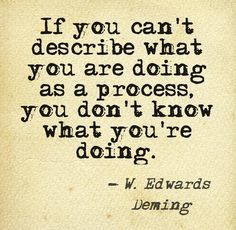Science has spoken, and there is good news for the owners of online businesses: working at home is actually more productive than wiling away the hours at an office. Stanford University came to this conclusion after comparing two groups of workers against a base of approximately 12,000 employees at an overseas travel agency.
Researchers divided a total of 508 employees into two groups, giving one group the green light to start working from home while sending the other group back to the workplace. Each employee’s work was then monitored, with factors including hours worked, phone calls answered and overall productiveness. Non-work factors, such as happiness, were also included in the study.
 So, what were the final results? When it came to productiveness, the telecommuters blew their commuting counterparts out of the water. The study concluded that the telecommuting group was happier and more productive while working at home and that they were even less likely to quit. With the cost of training a new employee, business owners might be especially happy to learn of the benefits that workers can get just from being allowed to work within the comfort of their own homes.
So, what were the final results? When it came to productiveness, the telecommuters blew their commuting counterparts out of the water. The study concluded that the telecommuting group was happier and more productive while working at home and that they were even less likely to quit. With the cost of training a new employee, business owners might be especially happy to learn of the benefits that workers can get just from being allowed to work within the comfort of their own homes.
Of course, there are many telecommuters who do not work solely from their homes. Some employees still go into work a few days a week and telecommute on the others, while other employees might be full-time telecommuters who prefer to set up base at their favorite coffee shops or cafés. Although this study did not examine that aspect of telecommuting, it is fairly reasonable to assume that telecommuting might be less about being at home and more about working in an environment that makes an employee feel comfortable and relaxed.


 Wealth is personal. No two individuals share the same financial situation, making comparing financial statuses with the neighbors next door more than just useless, it can be harmful.
Wealth is personal. No two individuals share the same financial situation, making comparing financial statuses with the neighbors next door more than just useless, it can be harmful. Wealth is not saving every penny. While a savings account with money set aside for emergencies is almost always a smart idea, it might not always be the best idea for every entrepreneur. Banks have notoriously low interest rates on savings accounts, so money not in use is typically better off being invested at higher rates.
Wealth is not saving every penny. While a savings account with money set aside for emergencies is almost always a smart idea, it might not always be the best idea for every entrepreneur. Banks have notoriously low interest rates on savings accounts, so money not in use is typically better off being invested at higher rates. Wealth is not from one source. Wealthy individuals did not make it by cashing in a paycheck every two weeks. While a steady paycheck is important, other lines of income must be utilized in order to reach true wealth. Investments and even secondary businesses are often the way to go for extra sources of income.
Wealth is not from one source. Wealthy individuals did not make it by cashing in a paycheck every two weeks. While a steady paycheck is important, other lines of income must be utilized in order to reach true wealth. Investments and even secondary businesses are often the way to go for extra sources of income.
 Let’s translate this back to the business world. Working in your business consists of all of the necessary tasks: accounting, marketing, customer service, etc. This work is crucial for maintaining a business and its reputation, but it is often not enough to help it grow to the next level. For that, you will need to work on it by stepping back and reevaluating the business plan, products and other areas of potential improvement.
Let’s translate this back to the business world. Working in your business consists of all of the necessary tasks: accounting, marketing, customer service, etc. This work is crucial for maintaining a business and its reputation, but it is often not enough to help it grow to the next level. For that, you will need to work on it by stepping back and reevaluating the business plan, products and other areas of potential improvement.
 Before Jeff Walker founded Internet Alchemy, he and his family were more than just a little stressed about their finances; they were barely covering the grocery bill. So what drove him to $20 million of success? According to Walker, “He who dares, wins,” a saying from the British Special Forces helped drive his success. To even have the chance to successfully start his own company, Walker knew that he had to stop dreaming and start doing.
Before Jeff Walker founded Internet Alchemy, he and his family were more than just a little stressed about their finances; they were barely covering the grocery bill. So what drove him to $20 million of success? According to Walker, “He who dares, wins,” a saying from the British Special Forces helped drive his success. To even have the chance to successfully start his own company, Walker knew that he had to stop dreaming and start doing.

 Humans have the extraordinary ability to exercise critical thinking and pattern recognition skills that are, no doubt, exceedingly important in the business world, but this ability can be downright useless for other tasks.
Humans have the extraordinary ability to exercise critical thinking and pattern recognition skills that are, no doubt, exceedingly important in the business world, but this ability can be downright useless for other tasks.

 Successful entrepreneurs understand that wealth does not magically accumulate overnight. Instead, careful and calculated steps toward goals can typically yield the most profitable results possible.
Successful entrepreneurs understand that wealth does not magically accumulate overnight. Instead, careful and calculated steps toward goals can typically yield the most profitable results possible.
 Out-of-date websites are simply unacceptable in today’s business world. Consumers are smarter and equipped with more technology than ever before, and they are searching for the most convenient, easiest and fastest option. If your website has problems, it can affect your brand, the foundation of trust with customers and, ultimately, your bottom line. It is simply too risky to have a bad website, but you may not have the time, resources or technical skills to make the needed improvements.
Out-of-date websites are simply unacceptable in today’s business world. Consumers are smarter and equipped with more technology than ever before, and they are searching for the most convenient, easiest and fastest option. If your website has problems, it can affect your brand, the foundation of trust with customers and, ultimately, your bottom line. It is simply too risky to have a bad website, but you may not have the time, resources or technical skills to make the needed improvements.  At Virtue Marketing, we offer web repair services to businesses of all kinds. We help insert functionality and improve the overall navigability of your site. In just one hour, our team of skilled web designers can identify problems and develop a solution that will improve your site and make it easier to connect with your customers. Working with a skilled web developer does not have to compromise your bottom line. These services are available on an hourly basis, so no long-term commitment is required in order to get the results that you need.
At Virtue Marketing, we offer web repair services to businesses of all kinds. We help insert functionality and improve the overall navigability of your site. In just one hour, our team of skilled web designers can identify problems and develop a solution that will improve your site and make it easier to connect with your customers. Working with a skilled web developer does not have to compromise your bottom line. These services are available on an hourly basis, so no long-term commitment is required in order to get the results that you need. 
 Finding the best route to build a business that reflects a personal purpose often starts in the business plan. Consider the three big Ps — product, profit and purpose. A solid and well-defined business plan will address all three of these, the most important of which is purpose.
Finding the best route to build a business that reflects a personal purpose often starts in the business plan. Consider the three big Ps — product, profit and purpose. A solid and well-defined business plan will address all three of these, the most important of which is purpose. Things like products and profits come secondary to purpose because there can be no sustainable growth, product development or growing profits without the focus, drive and heart that an intertwined personal and business purpose will inspire.
Things like products and profits come secondary to purpose because there can be no sustainable growth, product development or growing profits without the focus, drive and heart that an intertwined personal and business purpose will inspire.